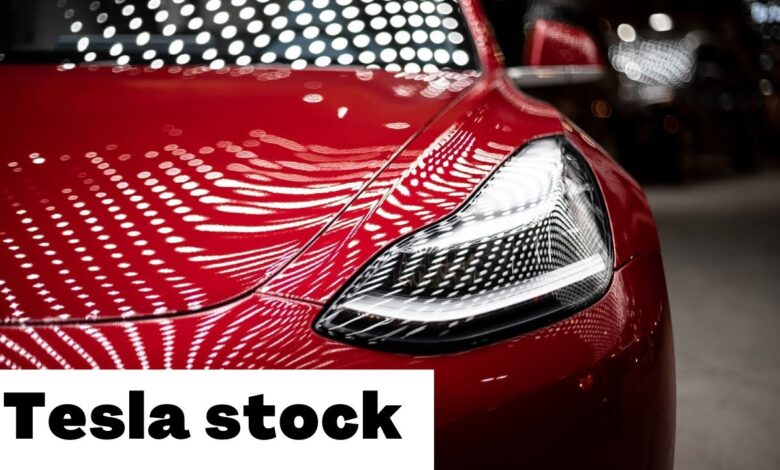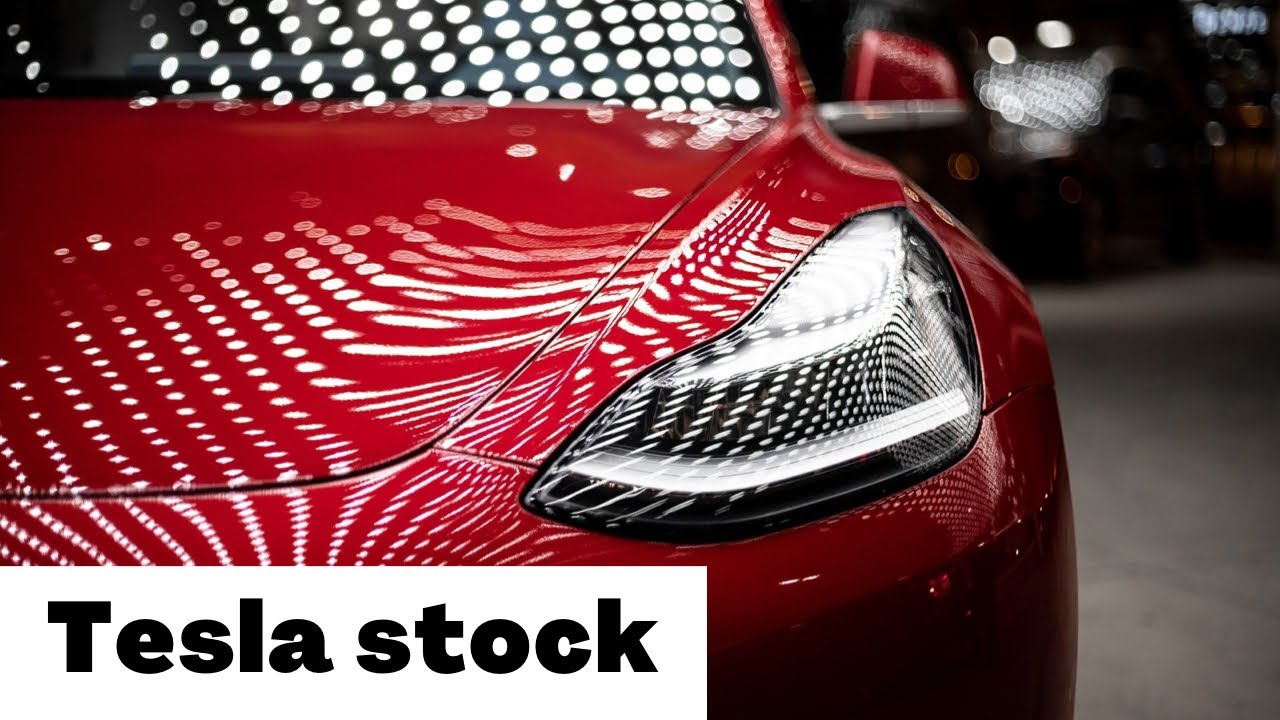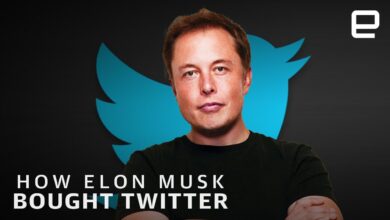
Teslas Week of Business Troubles
The week in business trouble for Tesla has been a rollercoaster ride of fluctuating stock prices, production hiccups, and regulatory scrutiny. From Elon Musk’s latest pronouncements to the ever-growing competition in the electric vehicle market, Tesla has been facing a storm of challenges.
This week’s events highlight the volatility and complexity of the company’s path to continued success.
Examining these challenges, we can gain a deeper understanding of the forces shaping Tesla’s future. Is this a temporary blip or a sign of deeper systemic issues? We’ll dive into the specifics to find out.
Recent Tesla Stock Performance
Tesla’s stock price has experienced significant fluctuations in recent months, reflecting a complex interplay of factors that include market sentiment, company performance, and external events. While the company continues to be a major player in the electric vehicle market, its stock performance has been volatile, offering both opportunities and challenges for investors.
Recent Trends in Tesla’s Stock Price
Tesla’s stock price has been on a roller coaster ride in recent months, experiencing both sharp rallies and significant declines. The stock has been particularly volatile since the beginning of 2023, influenced by a combination of factors.
Factors Contributing to Tesla’s Stock Fluctuations
Several factors have contributed to the recent volatility in Tesla’s stock price. These include:
- Elon Musk’s Twitter Acquisition:Elon Musk’s acquisition of Twitter and his subsequent involvement in the social media platform have generated significant attention and speculation, impacting Tesla’s stock price. Some investors have expressed concerns about Musk’s focus on Twitter, potentially diverting attention from Tesla’s operations.
- Production Challenges:Tesla has faced production challenges at its Gigafactory in Shanghai, China, due to lockdowns and supply chain disruptions. These challenges have impacted production and delivery targets, leading to concerns about the company’s growth prospects.
- Competition:Tesla is facing increasing competition in the electric vehicle market, with established automakers like General Motors and Ford, as well as new entrants like Rivian and Lucid Motors, rapidly expanding their electric vehicle offerings.
- Inflation and Interest Rates:Rising inflation and interest rates have created a challenging macroeconomic environment for businesses, including Tesla. Higher interest rates make it more expensive for Tesla to borrow money, potentially impacting its investment plans and growth.
- Market Sentiment:Overall market sentiment also plays a role in Tesla’s stock price. When the broader market is optimistic, Tesla’s stock tends to perform well. However, when the market is bearish, Tesla’s stock can experience significant declines.
Impact of Recent News Events on Tesla’s Stock Performance, The week in business trouble for tesla
Recent news events have had a significant impact on Tesla’s stock performance. For example:
- Elon Musk’s Twitter Deal:The announcement of Elon Musk’s acquisition of Twitter in April 2022 sent Tesla’s stock price plummeting. Investors were concerned about Musk’s focus on Twitter and the potential impact on Tesla’s operations.
- Tesla’s Q2 2023 Earnings Report:Tesla’s Q2 2023 earnings report, released in July 2023, showed a decline in revenue and profits, leading to a sell-off in the stock. The report highlighted challenges related to production, supply chain disruptions, and competition.
- Tesla’s Price Cuts:Tesla’s recent price cuts for its electric vehicles have also impacted the stock price. While the price cuts are aimed at increasing sales and market share, they have also raised concerns about profit margins.
Production and Delivery Challenges: The Week In Business Trouble For Tesla
Tesla has been facing a number of production and delivery challenges in recent months, which have impacted its ability to meet its ambitious growth targets. These challenges are primarily related to supply chain disruptions, factory production bottlenecks, and rising costs.
Production Delays and Bottlenecks
Tesla’s production has been affected by various factors, including the global chip shortage, which has impacted the availability of key components for its vehicles. This has led to production delays and a reduction in output at its factories around the world.
For instance, Tesla’s Gigafactory in Shanghai, China, faced temporary shutdowns due to COVID-19 lockdowns, which disrupted production and delivery schedules. Additionally, the company has also experienced production bottlenecks at its Fremont, California, factory, where it produces its Model S, Model 3, Model X, and Model Y vehicles.
These bottlenecks are attributed to factors such as labor shortages and supply chain disruptions.
Impact on Production and Delivery Targets
Tesla’s production delays and bottlenecks have significantly impacted its ability to meet its ambitious production and delivery targets. The company has had to revise its production and delivery estimates several times in recent quarters. For example, in the second quarter of 2023, Tesla delivered fewer vehicles than analysts had expected.
This shortfall was partly attributed to the company’s production challenges.
Comparison to Historical Performance
Tesla’s production and delivery figures have fluctuated in recent years. The company has experienced periods of strong growth, followed by periods of slower growth or even declines. For instance, in 2021, Tesla delivered a record number of vehicles, exceeding its previous year’s performance.
However, in 2022, the company’s growth slowed due to various factors, including supply chain disruptions and production bottlenecks. Despite these challenges, Tesla remains committed to its ambitious growth plans, and it is working to overcome these obstacles to achieve its targets.
Regulatory and Legal Issues
Tesla has been facing numerous regulatory and legal challenges, which have the potential to significantly impact its business operations, future growth, and profitability. These issues range from investigations into its Autopilot system to lawsuits related to its labor practices and environmental impact.
Regulatory Investigations
Regulatory investigations into Tesla’s Autopilot system have been a significant concern. The National Highway Traffic Safety Administration (NHTSA) has launched several investigations into Tesla’s Autopilot system, including a probe into a series of crashes involving Tesla vehicles. These investigations have raised concerns about the safety of Tesla’s Autopilot system and the potential for it to contribute to accidents.
The investigations could lead to fines, recalls, or even restrictions on the use of Tesla’s Autopilot system, which could significantly impact the company’s sales and brand reputation.
It’s been a rough week for Tesla, with stock prices plummeting and headlines filled with controversies. But amidst the chaos, I’ve been finding solace in exploring the benefits of online teaching, which is a field I’ve always been fascinated by.
Check out this article on the exciting aspects of online teaching – it’s a refreshing change of pace from the constant Tesla drama! Maybe I should start teaching online myself, just to escape the rollercoaster ride of the electric car market for a while.
Competition in the EV Market

The electric vehicle (EV) market is rapidly evolving, with numerous established and emerging players vying for market share. Tesla, once the dominant force in the EV space, now faces increasing competition from a diverse range of rivals, including established automakers, tech companies, and startups.
It’s been a rough week for Tesla, with a series of controversies and setbacks. From the recent recall to the ongoing investigations, it’s a reminder that even the most successful companies can face challenges. It’s important to remember that when you’re wronged, it’s crucial to stay true to your values and principles, even when the pressure is on.
A great resource for navigating such situations is how to stay right when youve been wronged , which provides valuable insights on handling difficult situations ethically. Only time will tell how Tesla will navigate these turbulent waters, but it’s clear that their journey will be one of resilience and adaptation.
Tesla’s Key Competitors
Tesla’s primary competitors in the EV market can be categorized into three groups:
- Traditional Automakers:These companies, such as Volkswagen, General Motors, Ford, Toyota, and Hyundai, are leveraging their existing manufacturing infrastructure, brand recognition, and dealer networks to enter the EV market. They are producing a wide range of EVs across different price points and segments, targeting both mass-market and luxury segments.
- Tech Companies:Companies like Apple, Google, and Amazon are exploring the potential of entering the EV market, leveraging their technological expertise and established ecosystems to develop innovative EVs and autonomous driving technologies.
- Emerging Startups:A number of startups, such as Rivian, Lucid Motors, and Nio, are challenging Tesla with their focus on premium EVs, advanced technology, and direct-to-consumer sales models.
Tesla’s Competitive Advantages and Disadvantages
Tesla has several competitive advantages, including:
- Early Mover Advantage:Tesla was a pioneer in the EV market, establishing a strong brand reputation and a loyal customer base.
- Strong Brand Recognition:Tesla’s brand is synonymous with electric vehicles, enjoying a high level of brand awareness and desirability among consumers.
- Advanced Technology:Tesla is known for its innovative technologies, including its proprietary battery technology, advanced driver-assistance systems, and over-the-air software updates.
- Direct-to-Consumer Sales Model:Tesla’s direct-to-consumer sales model eliminates the need for traditional dealerships, allowing for a more streamlined and cost-effective sales process.
- Strong Charging Infrastructure:Tesla has invested heavily in its Supercharger network, providing a convenient and reliable charging infrastructure for its customers.
However, Tesla also faces several competitive disadvantages:
- Production Challenges:Tesla has struggled to meet its production targets, leading to delays in deliveries and customer dissatisfaction.
- Quality Control Issues:Tesla has faced criticism for quality control issues, including defects in its vehicles and software glitches.
- High Prices:Tesla’s vehicles are generally priced at a premium compared to competitors, limiting its appeal to a broader market.
- Limited Model Lineup:Tesla currently offers a limited range of vehicles, compared to the diverse offerings of traditional automakers.
- Increasing Competition:The EV market is becoming increasingly competitive, with established automakers and new entrants launching a wide range of EVs.
Impact of Increased Competition on Tesla
The increasing competition in the EV market is likely to have a significant impact on Tesla’s market share and profitability.
- Market Share Erosion:As more competitors enter the market with competitive pricing and feature sets, Tesla’s market share is likely to erode.
- Price Pressure:The influx of new entrants is likely to put pressure on Tesla’s pricing, forcing it to lower prices to remain competitive.
- Increased Focus on Innovation:To maintain its competitive edge, Tesla will need to continue investing in research and development to stay ahead of the competition in terms of technology and innovation.
- Expansion of Sales and Service Networks:Tesla will need to expand its sales and service networks to meet the growing demand for its vehicles and to compete with traditional automakers’ established networks.
Financial Performance and Outlook
Tesla’s financial performance has been a subject of intense scrutiny in recent years, as the company navigates a rapidly evolving electric vehicle (EV) market. While Tesla has achieved impressive growth, several factors influence its financial performance and outlook.
It’s been a rough week for Tesla, with production delays and a dip in stock prices. While Elon Musk is busy with his space ambitions, maybe it’s time to look closer to home and ask, “Will the pro-abortion rights billionaires please stand up?” will the pro abortion rights billionaires please stand up Maybe some of that wealth could be used to support organizations fighting for reproductive rights, which would be a far more impactful investment than another Mars mission.
After all, if Tesla can’t even keep its own production line running smoothly, what hope is there for a Mars colony?
Recent Financial Performance
Tesla’s revenue has been consistently increasing, driven by strong demand for its EVs. The company’s profitability has also improved significantly, with Tesla reporting a record net income in 2022. However, Tesla’s financial performance is not without its challenges. The company’s operating margins have been under pressure due to increased competition and rising input costs.
Tesla has also faced criticism for its pricing strategies, which have been accused of being unsustainable in the long term.
Factors Driving Tesla’s Financial Performance
Several factors drive Tesla’s financial performance, including:
- Strong demand for EVs: Tesla has benefited from the growing demand for EVs globally. The company’s vehicles are considered among the most desirable in the market, thanks to their performance, technology, and brand image.
- Vertical integration: Tesla’s vertical integration strategy, which involves controlling various stages of the EV production process, allows the company to maintain control over costs and quality. However, this strategy can also make Tesla vulnerable to supply chain disruptions and economic downturns.
- Government incentives: Government incentives for EVs have played a significant role in Tesla’s success. These incentives have made EVs more affordable for consumers, boosting demand and driving sales.
- Expansion into new markets: Tesla’s expansion into new markets, such as China and Europe, has helped the company diversify its revenue streams and reduce its reliance on the North American market.
Potential Risks and Opportunities
Tesla faces several risks and opportunities in the coming months:
- Competition: Tesla faces increasing competition from established automakers, such as Volkswagen, General Motors, and Ford, which are rapidly expanding their EV offerings. These competitors are leveraging their existing manufacturing capabilities and economies of scale to challenge Tesla’s market share.
- Economic uncertainty: The global economic outlook remains uncertain, with rising inflation and interest rates posing potential risks to consumer spending. This could impact demand for EVs, including Tesla’s vehicles.
- Supply chain disruptions: Tesla, like many other companies, is facing supply chain disruptions due to the ongoing COVID-19 pandemic and geopolitical tensions. These disruptions can lead to production delays and higher costs, impacting the company’s financial performance.
- Regulatory and legal challenges: Tesla continues to face regulatory and legal challenges, including investigations into its Autopilot system and allegations of labor violations. These challenges could lead to significant financial penalties and reputational damage.
- Expansion into new markets: Tesla’s expansion into new markets, such as India and Southeast Asia, presents significant opportunities for growth. However, the company will need to navigate complex regulatory environments and establish strong partnerships to succeed in these markets.
- Innovation and technology: Tesla’s success is closely tied to its ability to innovate and develop new technologies. The company is investing heavily in research and development, but it faces competition from other technology companies, such as Google and Apple, which are also entering the EV market.
Elon Musk and Tesla Leadership
Elon Musk’s leadership has been a defining factor in Tesla’s rise to prominence. His visionary approach, relentless pursuit of innovation, and unconventional management style have both propelled the company forward and sparked controversy. However, recent events have raised questions about the long-term impact of his leadership on Tesla’s trajectory.
Elon Musk’s Recent Statements and Actions
Elon Musk’s recent statements and actions have generated significant attention and debate. His acquisition of Twitter, coupled with his subsequent changes to the platform, has drawn criticism and raised concerns about his ability to manage multiple high-profile companies effectively. Additionally, his controversial tweets and public pronouncements have sometimes created uncertainty and volatility in the market.
For instance, his announcement of a potential “Cybertruck” production delay caused Tesla’s stock to dip.
Impact of Elon Musk’s Leadership on Tesla’s Strategy and Performance
Elon Musk’s leadership has undoubtedly played a pivotal role in shaping Tesla’s strategy and performance. His relentless focus on innovation has driven the company to develop cutting-edge electric vehicles and energy storage solutions. His hands-on approach and willingness to take risks have allowed Tesla to challenge established automotive giants and establish a foothold in the rapidly growing electric vehicle market.
“I think it’s important to be very, very clear about what our mission is, and our mission is to accelerate the advent of sustainable energy.”
Elon Musk
Challenges and Opportunities Associated with Elon Musk’s Leadership
Elon Musk’s leadership style, characterized by its demanding nature and focus on rapid growth, has both advantages and drawbacks. While his vision and drive have propelled Tesla’s success, his unconventional approach and sometimes erratic behavior have also created challenges.
Challenges
- Employee Morale:Musk’s demanding work culture and frequent criticism of employees have led to concerns about employee morale and retention.
- Financial Sustainability:Tesla’s aggressive expansion plans have strained its financial resources, raising concerns about its long-term sustainability.
- Regulatory and Legal Issues:Musk’s outspoken nature and unconventional business practices have led to numerous regulatory and legal challenges.
Opportunities
- Innovation and Disruption:Musk’s visionary approach and relentless pursuit of innovation have positioned Tesla as a leader in the electric vehicle and renewable energy sectors.
- Global Expansion:Musk’s ambition and global vision have enabled Tesla to expand its operations to new markets and establish a strong international presence.
- Brand Loyalty:Musk’s charisma and the Tesla brand’s association with innovation have fostered a strong base of loyal customers.
Wrap-Up
The week in business trouble for Tesla has left investors and analysts alike wondering about the company’s trajectory. Despite the recent setbacks, Tesla remains a dominant force in the EV market, with its innovative technology and dedicated fanbase. The coming weeks and months will be crucial in determining whether Tesla can overcome its current challenges and continue its growth story.
One thing is certain: the ride will be anything but boring.






